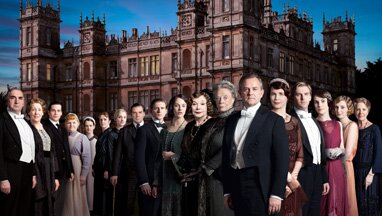Hannah Arendt opens on July 19 in at Seven Gables Theatre.
Adolf Eichmann, reported political theorist Hannah Arendt for the New Yorker in 1963, was “thoughtless,” a boastful bureaucrat who said, “Officialese is my only language.” When Arendt said Eichmann couldn’t think, she explained that what she meant was: “think from the standpoint of somebody else.” In many ways, Arendt’s peculiar indictment of Eichmann — a man many believed to be the logistical force behind millions of death-camp murders — was, as befitted the author of The Origins of Totalitarianism, a critique of the social structures that permitted not just Eichmann but nearly all Germans not to imagine what was happening in those camps.
For Arendt, Eichmann was an edge case that demonstrated how normal people could not think about the Holocaust as it occurred. Here was a man whose job it was to know, and who nonetheless could, burying himself in the minutiae of genocide, feel no remorse as a consequence of his actions. He was, he said in the language of Nuremberg, just following orders. In at least one instance, Eichmann discovered one of the people he thought of as a “useful” Jew had been sent to a death camp. Though unwilling simply to free him — that would have meant challenging his superiors — Eichmann got the man a light work detail, sweeping a gravel path, feeling very contented with himself, although the man was killed just weeks later.
For her eponymous film, director Margarethe von Trotta worked again with Barbara Sukowa, who plays Arendt in middle age as bursting with intellectual and romantic fervor (her marriage to Axel Milberg’s Heinrich Blücher is a lusty fairytale), but with a hawkish dispossession, her eyes glinting as they fasten on Eichmann during his trial. She can hardly believe how feeble a thinker of any sort he is, this, the fabled Eichmann, and it’s this experience that prompts her to refocus on the “banality” of Eichmann’s evil. He is not heroic, a Faustian devil — he’s a mindless cog put to use by a warped ideology.
In the context of film as artwork, von Trotta’s major gesture is in the way that Martin Heidegger (Klaus Pohl) makes appearances throughout the film. Von Trotta doesn’t underline it in the American way of having Arendt deliver a subtextual monologue to Heidegger, but his presence is a counterpoint to her (salutary, I think) demolition of a cult of Eichmann. Heidegger, after all, was a German who could think, as Arendt knew from her relationship with him. And yet, there he had been, a newly minted Nazi Party member and rector of the University of Freiburg. Eichmann may have been on trial publicly, but it was Heidegger’s betrayal, von Trotta suggests, that weighed on Arendt’s mind.
The latter part of Von Trotta’s film turns on the blowback to Arendt’s incendiary article — it brought threats and cost her old friends. She’s berated for not having imagined, ironically enough, this eventuality. (It’s possible she meant it in a pedagogical way, but her discussion of the cooperation of Jewish councils with the Nazis was guaranteed to be inflammatory. If you can’t resist, Arendt wrote, you still have the option of doing nothing to help. That’s a strategic assessment, perhaps similar to the calculus on dealing with terrorist hijackers. But it sounded like victim-blaming.)
If you are not steeped in the era’s history, Hannah Arendt may feel like a Cliff’s Notes version, as arguments tend to be set up rather than developed. Minor characters come off as spokespeople doing walk-ons.
It’s possible to watch the film and feel Arendt was simply terribly put-upon, a frank academic who believed too strongly in the truth, rather than someone who made dubious claims in print about Eichmann’s “Zionism.” Von Trotta’s portrayal of the New Yorker staff also feels lightly mocking of their middlebrow concerns — they didn’t know what they were getting into. Poor William Shawn is always on the phone, checking on Arendt’s progress. (Eichmann’s trial began in April 1961. He was hanged end of May 1962. Arendt’s series didn’t run until February 1963.)
Von Trotta’s Arendt, honey-badger-like, cows Shawn with a few sharp words. But surely that truck colliding into Arendt’s taxi in Central Park in March of 1962 — she woke in the ambulance, with a number of broken ribs — also slowed her down. Von Trotta elides these kinds of things, just as Arendt did in her treatment of Eichmann, making a larger point. But in von Trotta’s case, this is a miscalculation. When all you hear at length is Arendt’s eloquent defenses, you’re robbed of much the drama of the actual debate.
